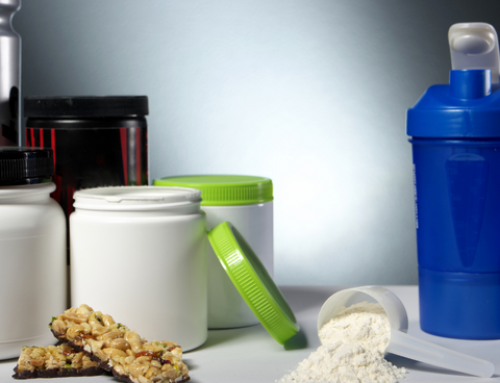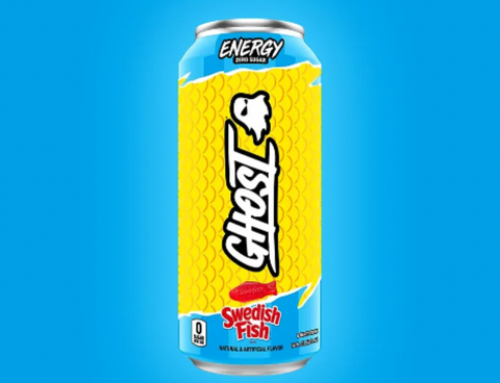7 Fiber Supplements: More Than Just For Weight Loss
The health benefits of fiber extend beyond weight loss and constipation relief. In both isolated and whole form, fiber plays a multitude of significant roles in our diet. (See Fill Up on Fiber [But Not Before Competition].)
A necessary nutrient, fiber lowers a meal’s glycemic index, resulting in reduced blood sugar levels. It also helps to decrease cholesterol, increase satiation and improve overall energy through other synergistic compounds. (But how much is too much? Can You Eat Too Much Fiber?)
Chia Seeds
Who could have imagined that the chia pets of the early 1980s would become a high-quality source of fiber? Those furry creatures are now more popular as food than as companions.
Just one tablespoon of chia seeds provides 4 to 6 grams of dietary fiber, as well as omega-3, 6, and 9 fatty acids. Omega-3 fatty acids have been found to be beneficial for cardiovascular health and cholesterol levels.
(Learn more in 16 Nuts and Seeds You Should Be Eating.)
Psyllium Husks
Psyllium husks provide two grams of fiber per teaspoon, the highest form of isolated fiber per gram. They have been shown to increase bulk in the intestines and provide relief from constipation. Psyllium husks also help with weight loss, especially when combined with the fiber supplement glucomannan.
Flaxseed
Like chia seeds, flaxseeds are a high-fiber food that’s also a good source of omega-3 fatty acids. Although flaxseeds do not gel as much as chia seeds, they’re very high in fiber. Just one tablespoon of ground flaxseed contains two grams.
Flaxseeds must be ground in order to deliver their health benefits. In their whole form, the body has a difficult time breaking them down.
Glucomannan
This fiber supplement has been the subject of much research in nutritional science. Studies have shown it to increase satiety, decrease cholesterol levels and balance blood sugar in Type 2 diabetics.
When added to water, glucomannan forms a thick gel that lines the stomach and provides bulk and satiation. It also draws cholesterol into itself, which is later excreted from the body. Glucomannan slows down the rate at which carbohydrates break down into glucose in the blood, leading to steady blood sugar levels. When combined with psyllium husks, research shows that glucomannan is a powerful weight loss supplement.
Take this supplement with plenty of water. All thick fiber supplements can increase the risk of choking if not taken correctly.
Apple Fiber
With four grams of fiber per tablespoon, apple fiber is great in smoothies and other sweet drinks. It provides both soluble and insoluble fiber, both of which help reduce cholesterol and increase bulk in the intestines.
Probiotics
These are “friendly” bacteria that our intestines need in large numbers in order to keep our immune system, serotonin, digestion, and absorption in check. They help fight off “bad” bacteria and increase the rate at which we digest and excrete food.
Natural Bitters
Derived from bitter tasting herbs such as dandelion and catnip, bitters, when taken in tincture form or as tea, get the digestive system moving. They may also activate the part of the brain that releases gastrin, a hormone that increases gastric acid and bile flow, both important for healthy digestion. Since the key to weight loss is a healthy digestive system, it may be important to include some bitters, along with natural fibers, to ensure weight loss success.
Guidelines
When you take any fiber supplement, remember to drink plenty of water—at least 8 ounces. This will increase the bulk the fiber produces. Also, as with psyllium husks and glucomannan, water helps the supplement slide down the throat easily. These fibers are quite thick and can induce choking when taken in their dry form.
RECOMMENDED FOR YOU
7 Fiber Supplements: More Than Just For Weight Loss
The health benefits of fiber extend beyond weight loss and constipation relief. In both isolated and whole form, fiber plays a multitude of significant roles in our diet. (See Fill Up on Fiber [But Not Before Competition].)
A necessary nutrient, fiber lowers a meal’s glycemic index, resulting in reduced blood sugar levels. It also helps to decrease cholesterol, increase satiation and improve overall energy through other synergistic compounds. (But how much is too much? Can You Eat Too Much Fiber?)
Chia Seeds
Who could have imagined that the chia pets of the early 1980s would become a high-quality source of fiber? Those furry creatures are now more popular as food than as companions.
Just one tablespoon of chia seeds provides 4 to 6 grams of dietary fiber, as well as omega-3, 6, and 9 fatty acids. Omega-3 fatty acids have been found to be beneficial for cardiovascular health and cholesterol levels.
(Learn more in 16 Nuts and Seeds You Should Be Eating.)
Psyllium Husks
Psyllium husks provide two grams of fiber per teaspoon, the highest form of isolated fiber per gram. They have been shown to increase bulk in the intestines and provide relief from constipation. Psyllium husks also help with weight loss, especially when combined with the fiber supplement glucomannan.
Flaxseed
Like chia seeds, flaxseeds are a high-fiber food that’s also a good source of omega-3 fatty acids. Although flaxseeds do not gel as much as chia seeds, they’re very high in fiber. Just one tablespoon of ground flaxseed contains two grams.
Flaxseeds must be ground in order to deliver their health benefits. In their whole form, the body has a difficult time breaking them down.
Glucomannan
This fiber supplement has been the subject of much research in nutritional science. Studies have shown it to increase satiety, decrease cholesterol levels and balance blood sugar in Type 2 diabetics.
When added to water, glucomannan forms a thick gel that lines the stomach and provides bulk and satiation. It also draws cholesterol into itself, which is later excreted from the body. Glucomannan slows down the rate at which carbohydrates break down into glucose in the blood, leading to steady blood sugar levels. When combined with psyllium husks, research shows that glucomannan is a powerful weight loss supplement.
Take this supplement with plenty of water. All thick fiber supplements can increase the risk of choking if not taken correctly.
Apple Fiber
With four grams of fiber per tablespoon, apple fiber is great in smoothies and other sweet drinks. It provides both soluble and insoluble fiber, both of which help reduce cholesterol and increase bulk in the intestines.
Probiotics
These are “friendly” bacteria that our intestines need in large numbers in order to keep our immune system, serotonin, digestion, and absorption in check. They help fight off “bad” bacteria and increase the rate at which we digest and excrete food.
Natural Bitters
Derived from bitter tasting herbs such as dandelion and catnip, bitters, when taken in tincture form or as tea, get the digestive system moving. They may also activate the part of the brain that releases gastrin, a hormone that increases gastric acid and bile flow, both important for healthy digestion. Since the key to weight loss is a healthy digestive system, it may be important to include some bitters, along with natural fibers, to ensure weight loss success.
Guidelines
When you take any fiber supplement, remember to drink plenty of water—at least 8 ounces. This will increase the bulk the fiber produces. Also, as with psyllium husks and glucomannan, water helps the supplement slide down the throat easily. These fibers are quite thick and can induce choking when taken in their dry form.











